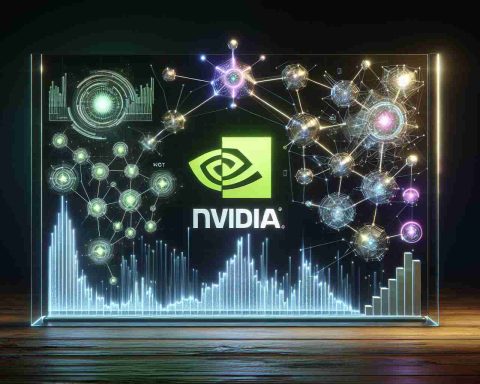Exploring the Controversial Stargate Initiative
The tech industry is captivated by the unveiling of the Stargate initiative, a bold project aimed at investing $500 billion into the U.S. artificial intelligence infrastructure, promoted by former President Donald Trump. Nevertheless, tech magnate Elon Musk has voiced serious doubts about the project’s funding viability. He questions whether such a grand plan can truly attract the necessary financial support.
The Stargate initiative features prominent players such as Oracle, SoftBank, OpenAI, and the UAE-backed MGX fund. Its goal is to transform AI infrastructure by constructing data centers integral for processing the tremendous data load essential for advanced AI technologies. At the launch, SoftBank’s CEO revealed an ambitious immediate investment of $100 billion, with hopes to reach that staggering $500 billion target within four years. Musk remains skeptical, suggesting that SoftBank can only guarantee about $10 billion.
Reports regarding the financial health of Stargate’s collaborators have shown concerning signs. Notably, SoftBank has approximately $30 billion in liquid assets, while Oracle’s cash and securities total around $11 billion. As Musk questions their financial prowess, the industry grapples with mixed reactions. Sam Altman, CEO of OpenAI, playfully invited Musk to evidence their progress, subtly igniting the longer-standing rivalry in tech ideologies.
As scrutiny of Stargate intensifies, questions about its execution loom large. The contrasting political landscapes under Trump and current President Biden may further complicate the necessary support for such pioneering initiatives. Will this ambition thrive, or is it set up for failure?
Broader Implications of the Stargate Initiative
The Stargate Initiative holds profound implications beyond its ambitious financial framework, potentially reshaping societal structures and the global economy. With an investment of $500 billion into AI infrastructure, it positions the U.S. as a competitive force in the rapidly evolving technology arena. This endeavor could lead to significant job creation across various sectors, reinforcing the need for a workforce adept in AI and data analytics. As automation escalates, broad-based training programs will become essential to mitigate job displacement for lower-skill workers.
Conversely, the initiative raises concerns about concentration of power in the tech industry, particularly among a few significant players like SoftBank and Oracle. This reality could exacerbate existing inequalities, fueling debates about regulatory measures to foster a more inclusive economy.
Environmentally, the establishment of extensive data centers associated with AI infrastructure may lead to increased energy consumption and carbon footprints. As the tech sector moves toward sustainability, the challenge lies in aligning these investments with renewable energy initiatives to minimize ecological impact.
Looking ahead, the Stargate Initiative symbolizes a pivotal moment in global technological leadership. Success could spark a nationalistic race for AI supremacy, spurring other nations to ramp up their investments in similar technologies, thereby altering the power dynamics on the world stage.
In examining these dimensions, the question remains: Can such an ambitious project strike a balance between innovation, equity, and sustainability, or will it further entrench existing disparities?
The Future of AI: A Deep Dive into the Stargate Initiative
Understanding the Stargate Initiative
The Stargate initiative has emerged as a formidable endeavor, aiming to invest $500 billion into enhancing the U.S. artificial intelligence (AI) infrastructure. Spearheaded by former President Donald Trump, the initiative is designed to elevate the nation’s position in the global AI landscape. However, it has attracted mixed reactions from key figures in the technology sector, notably Elon Musk, who has raised concerns about the feasibility of securing the required financial backing for such an ambitious project.
Key Players and Their Roles
The initiative boasts the involvement of several industry heavyweights, including Oracle, SoftBank, OpenAI, and the UAE-backed MGX fund. These organizations are essential to developing the infrastructure necessary for advanced AI technologies. Notably, SoftBank’s CEO announced a significant initial investment of $100 billion, with aspirations to reach the ultimate $500 billion goal within a four-year timeframe.
Pros and Cons of the Stargate Initiative
Pros:
– Massive Investment: The proposed $500 billion investment could significantly bolster the U.S. AI infrastructure, positioning it as a global leader in technology.
– Collaboration of Major Firms: The involvement of established tech giants ensures expertise and resources are available for the initiative.
– Potential for Advanced Technologies: Development in AI could spur innovations in various sectors, including healthcare, finance, and transportation.
Cons:
– Skepticism Over Funding Viability: With Elon Musk questioning whether necessary funds can be secured, doubts persist over the project’s financial sustainability.
– Mixed Fortunes of Collaborators: The financial health of key collaborators raises concerns, as evidenced by SoftBank’s $30 billion in liquid assets and Oracle’s approximately $11 billion in cash and securities.
– Political Challenges: The changing political landscape may impact support for the initiative, especially with contrasting approaches between Trump’s and Biden’s administrations.
Current Market Analysis
The AI market is expanding rapidly, with projected growth rates approaching 40% annually over the next few years. The Stargate initiative, if successful, could capture a significant share of this burgeoning market. By addressing the critical infrastructure needs for AI, it may facilitate advancements that could drive further economic growth. However, every major initiative comes with risks, and the unstable financial climate could hinder progress.
Insights and Innovations
The Stargate initiative represents not just an investment in technology, but a strategic shift towards establishing a comprehensive AI infrastructure. Innovations expected from this initiative include:
– Enhanced Data Centers: Upgraded facilities designed to handle massive data processing tasks crucial for advancing AI algorithms.
– Public-Private Collaborations: Increased synergy between government initiatives and private sector advancements, potentially fostering a more robust innovation ecosystem.
Limitations and Security Aspects
As with any large-scale initiative, limitations exist. Concerns over cybersecurity and data privacy will be paramount, given the sheer volume of data processed in advanced AI applications. Ensuring that the infrastructure is resilient to cyber threats will be crucial in maintaining public trust and ensuring the success of the Stargate initiative.
Conclusion: What’s Next for Stargate?
As the Stargate initiative progresses, continuous monitoring of its financial backing, political support, and technological advancements will be necessary. It represents a crucial moment in the U.S. bid to lead in artificial intelligence. The conversation surrounding its feasibility, impact, and execution is only beginning, and as tech leaders continue to weigh in, the future remains uncertain but full of potential.
For further insights into the tech industry’s evolution, visit Tech Industry News.


















